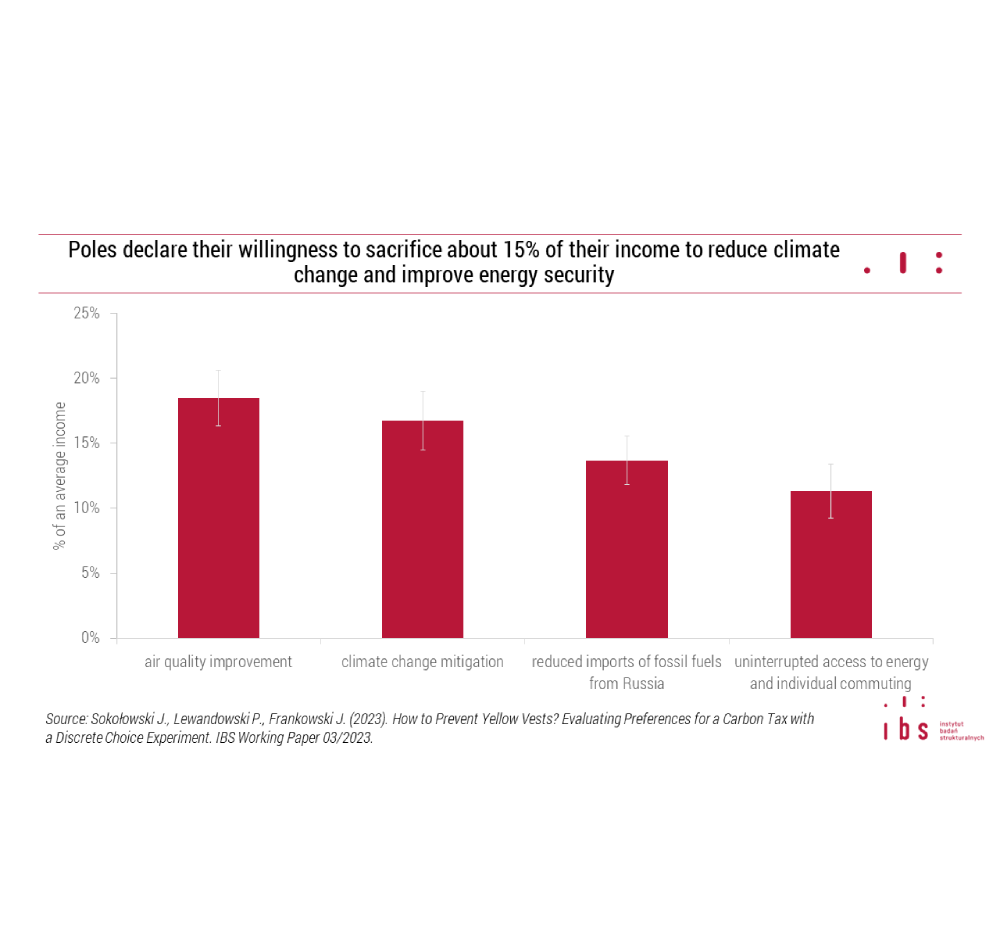Climate policy can trigger tensions in divided societies with low trust. We examine public preferences for policies to achieve energy security and climate change mitigation goals in the context of the energy crisis caused by Russia’s invasion of Ukraine. We conducted a discrete choice experiment with 10,000 people in Poland, a country heavily reliant on fossil fuels. Using a willingness-to-pay approach, we find a strong aversion to carbon tax, only slightly mitigated by redistribution. Income, trust, and age shape preferences for climate and energy policies, and for redistribution mechanisms. People with low incomes value climate change mitigation (15%) and energy security (10%) less than the average (17% and 14%, respectively). People aged 55 or more value climate mitigation less than those aged 18-34 (12% vs 28%) but are willing to sacrifice more to reduce Russian fuel imports (16% vs 11%). Quantifying the preferences for redistribution measures, we find that households with low income prefer cash transfers while high-income households prefer green investment subsidies. Addressing redistribution accordingly could increase support for climate policy more than providing either transfers or subsidies for all.

We thank Katarzyna Lipowska, Karol Madoń, Joanna Mazurkiewicz and Mateusz Smoter for their insightful comments. The European Climate Foundation financially supported this paper. The usual disclaimers apply. All errors are ours.
Institute for Structural Research (IBS), Institute of Philosophy and Sociology Polish Academy of Sciences

